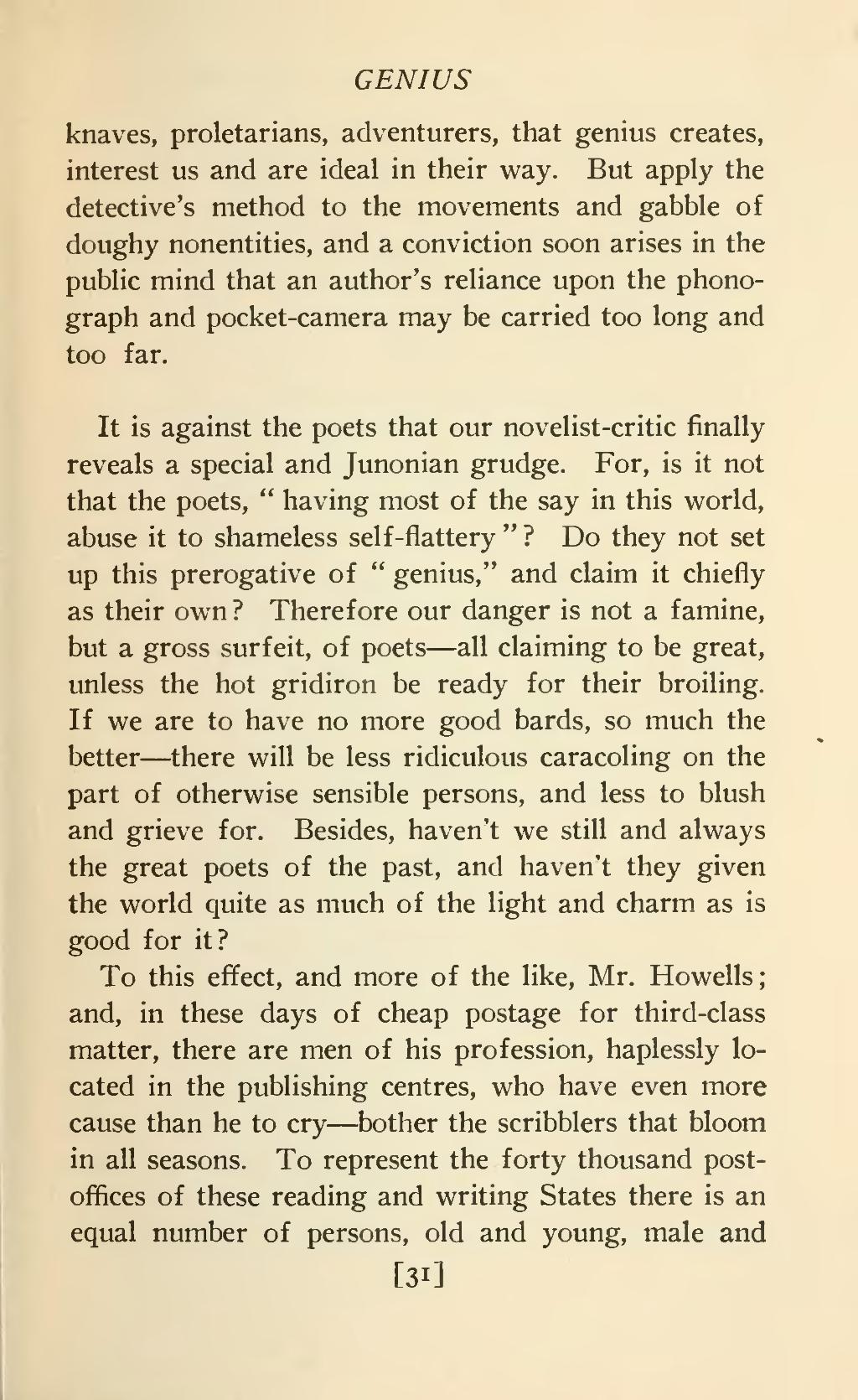GENIUS
knaves, proletarians, adventurers, that genius creates, interest us and are ideal in their way. But apply the detective's method to the movements and gabble of doughy nonentities, and a conviction soon arises in the public mind that an author's reliance upon the phonograph and pocket-camera may be carried too long and too far.
It is against the poets that our novelist-critic finally reveals a special and Junonian grudge. For, is it not that the poets, "having most of the say in this world, abuse it to shameless self-flattery"? Do they not set up this prerogative of "genius," and claim it chiefly as their own? Therefore our danger is not a famine, but a gross surfeit, of poets—all claiming to be great, unless the hot gridiron be ready for their broiling. If we are to have no more good bards, so much the better—there will be less ridiculous caracoling on the part of otherwise sensible persons, and less to blush and grieve for. Besides, haven't we still and always the great poets of the past, and haven't they given the world quite as much of the light and charm as is good for it?
To this effect, and more of the like, Mr. Howells; and, in these days of cheap postage for third-class matter, there are men of his profession, haplessly located in the publishing centres, who have even more cause than he to cry—bother the scribblers that bloom in all seasons. To represent the forty thousand post-offices of these reading and writing States there is an equal number of persons, old and young, male and
[31]
